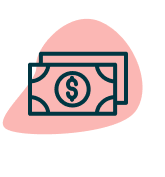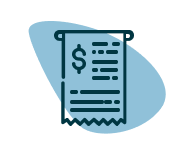SBA Loans: A Small Business Guide
An SBA loan may be your best small business loan option, if you can qualify.
Last updated Dec. 17, 2024
What Is an SBA Loan?
SBA loans are small business loans
The main SBA loan programs—7(a), CDC/504, and microloan—let you borrow money for nearly any business purpose, including working capital, purchasing inventory or equipment, refinancing other debts, or buying real estate.
SBA loans offer low interest rates and long repayment terms, making them one of the most desirable types of business financing on the market. However, they are generally slower to fund and require a lengthy application.
How much do you need?
No cost to you
Your credit score won't be impacted
Compare multiple lenders with one application
SBA Loan Types
The SBA has a number of different loan programs. The one you’ll want to apply for depends on the size, age, and goals of your business. These four options tend to be the most common.
SBA 7(a) Loans
Best for: General business financing needs
The SBA 7(a) loan program is the SBA’s main loan program. SBA 7(a) loans are available in amounts up to $5 million and come in many types, including SBA Express loans and CAPLines working capital credit lines.
This SBA loan is highly sought after because the capital can be put toward a wide range of business purposes, and the interest rates and terms are some of the most competitive available to small businesses.
SBA 7(a) loans come with either fixed or variable interest rates (typically adjusted quarterly), determined by each SBA-approved lender. Your interest rate depends on your credit score and the length of your repayment term. To protect borrowers, the SBA restricts how much a lender can make off your SBA loan.
Rates10.75% to 15.75% (using prime rate of 7.75%), dependent on loan size and fixed or variable spread.
TermsMonthly payments for up to 10 years (equipment and working capital) or 25 years (real estate).
FeesGuarantee fee ranging from 0.25% to 3.75% of the guaranteed portion of the loan. Some lenders may also charge an origination fee or a loan packaging fee.
SBA Express Loans
Best for: General business financing needs
SBA Express loans are part of the 7(a) loan program, but they can typically fund faster than 7(a) loans. Like 7(a) loans, Express loans come in the form of term loans or lines of credit. Unlike 7(a) loans, they max out at $500,000.
If you borrow less than $50,000, you won’t be required to put up collateral. SBA Express loans also involve a guarantee fee (though this fee is waived for eligible businesses owned by veterans
Rates10.75% to 15.75%, depending on fixed or variable spread (the majority tend to be variable).
TermsMonthly payments for up to 10 years (working capital, equipment, and lines of credit) or 25 years (real estate).
FeesOne-time guarantee fee based on the loan amount. Some lenders may charge additional fees.
SBA CDC/504 Loans
Best for: Purchase of major fixed assets, like land, buildings, large equipment, and machinery
An SBA CDC/504 loan is used specifically to purchase fixed assets, upgrade existing assets, or purchase real estate. This type of loan is funded by certified development companies (CDC) and other lenders.
Typically with a 504 loan, a bank or credit union extends half the total loan amount, SBA-approved CDCs extend 40% of the loan amount, and the borrower covers the remaining 10% as a down payment. These loans are available in amounts ranging from $25,000 to $5 million, though certain projects can be eligible for up to $5.5 million.
The rates on the CDC portion of the loan are subject to SBA rules. The bank portion of the loan, however, is not subject to SBA regulation. You’ll receive a rate based on your business’s qualifications, and you’ll be able to negotiate your rate with the bank.
RatesUsually ~5% to 7% of the amount financed, for the CDC portion of the loan.
TermsMonthly payments for either a 10-, 20-, or 25-year term.
FeesOften about 3% of the loan amount and can sometimes be financed with the loan.
SBA Microloans
Best for: Starting or expanding a new business
An SBA microloan is a loan of up to $50,000 from an intermediary nonprofit to a small business or startup. The money originates from the SBA, which initially lends the money at a discounted rate to the intermediary. The institution you work with is the one that sets the interest rate on the microloan, depending on your creditworthiness and the specifics of your small business.
Businesses can use SBA microloans for a range of purposes, including working capital or buying equipment, machinery, or supplies. And while these SBA loans often require collateral, they do come with slightly more accessible requirements, including a lower minimum credit score and the opportunity to be considered even if you’ve been in business less than two years.
RatesTypically range between 8% to 13%.
Terms7 years is the maximum repayment term allowed.
FeesUp to 3% of the loan amount in fees (up to 2% for loans with terms of less than one year) plus closing costs.
Who Qualifies for an SBA Loan?
*Based on past Fundera customers


Pros and Cons of SBA Loans
Pros
✔️ Low interest rates.
✔️ Long repayment terms.
✔️ Can be used for a variety of purposes.
✔️ Require low down payments.
Cons
✖️ Difficult to qualify for.
✖️ Lengthy application process.
✖️ May require collateral.
How to Apply for an SBA Loan
The SBA loan application process can be lengthy and complicated. You’ll need to provide several SBA-specific forms along with multiple business and personal documents, including the following:
- Business overview.
- Business license.
- Resume for each owner.
- Record of previous loan applications.
- Income statements.
- Balance sheets.
- Business and personal tax returns.
- Business debt schedule.
The participating lender will look for applicants with good credit, a solid business plan, a record of profitability (most of the time, not always), and a demonstrated ability to repay the loan. Your borrowing history is especially important to the lender you work with for an SBA loan.
Fundera Can Help
Curious to see what kind of small business financing you qualify for? Fill out one simple application with Fundera, and we’ll show you your options. This won’t impact your credit score, and there’s no obligation to get your funding through one of our partners.
Let’s get you funded!
How much do you need?
No cost to you
Your credit score won't be impacted
Compare multiple lenders with one application
Frequently asked questions
What is the easiest SBA loan to get approved for?
What are SBA loan requirements?